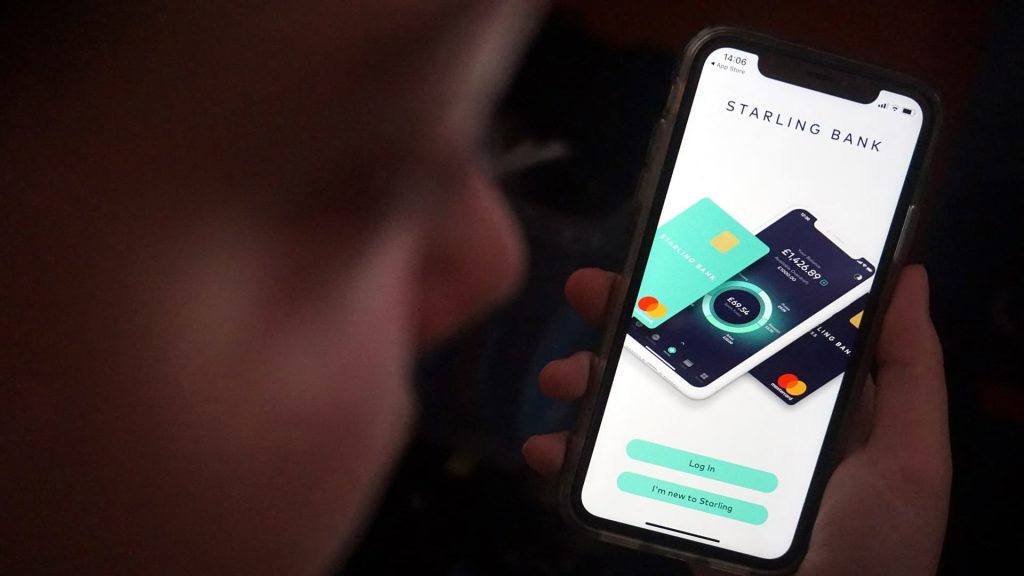In a recent report, British online lender Starling Bank disclosed a significant decline in annual profits for the year ending March 31, 2025. The downturn is attributed to complications arising from Covid-era business loan fraud and a regulatory fine for financial misconduct. Although revenue grew slightly, the bank is grappling with challenges that could affect its trajectory in an increasingly competitive financial landscape.
| Article Subheadings |
|---|
| 1) Starling Bank’s Financial Overview |
| 2) Regulatory Challenges and Fines |
| 3) Issues with the Bounce Back Loan Scheme |
| 4) Company’s Response and Future Outlook |
| 5) Competitive Landscape for Starling Bank |
Starling Bank’s Financial Overview
Starling Bank reported a profit before tax of £223.4 million (approximately $301.9 million) for the fiscal year ending March 31, 2025. This figure represents a nearly 26% decrease from the previous year. Despite this drop, the bank saw a slight increase in revenue, totaling £714 million, which is roughly a 5% rise from £682 million the year prior. This revenue growth, though a positive indicator, signals a slowdown compared to the over 50% growth experienced in the 2024 fiscal year.
The decline in profit highlights the complexity of the financial sector during economic recovery, especially amid the lingering impacts of the Covid-19 pandemic. The fluctuations in profit margins could concern investors, prompting questions about the bank’s strategic measures moving forward.
Regulatory Challenges and Fines
Starling Bank faced scrutiny from the U.K.’s Financial Conduct Authority (FCA), which resulted in a £29 million fine for failings regarding its financial crime prevention systems. This regulatory action is part of a broader regulatory landscape where financial institutions are increasingly held accountable for compliance failures. The weak points identified in Starling’s systems could potentially damage both its reputation and operational integrity.
In a media call, Starling’s Chief Financial Officer, Declan Ferguson, emphasized the bank’s commitment to addressing these issues transparently. The FCA’s fine not only affected this fiscal year’s profit but also raised questions about accountability and adherence to regulatory frameworks within the banking sector.
Issues with the Bounce Back Loan Scheme
The bank has also disclosed complications related to the Bounce Back Loan Scheme (BBLS), initiated during the pandemic to support businesses with quick access to funds. Starling was among several banks authorized to issue these loans, which came with a full government guarantee in case of borrower default.
However, Starling identified a group of BBLS loans that likely did not meet the guarantee requirements due to historical weaknesses in fraud checks. This revelation prompted Starling to inform the British Business Bank and voluntarily withdraw the government guarantee on those specific loans. Accordingly, Starling has accounted for a £28.2 million provision in its financial statements this year, which includes both the FCA fine and the issues arising from the BBLS.
Company’s Response and Future Outlook
Following the identification of the BBLS issues, Starling remains proactive in its response. The bank holds an Expected Credit Loss provision of £800,000, referring to certain BBLS loans where the guarantee may no longer apply. Declan Ferguson explained that addressing this legacy issue has been done with full cooperation from the British Business Bank.
The bank’s leadership has indicated that it remains committed to improving its financial crime prevention strategies and compliance mechanisms moving forward. With these challenges identified, Starling appears focused on restoring investor confidence and reassessing its existing protocols to avoid future pitfalls.
Competitive Landscape for Starling Bank
Since its inception as a licensed bank in the U.K. in 2018, Starling has attracted significant investment from major shareholders including Goldman Sachs, Fidelity Investments, and the Qatar Investment Authority. Despite its promising beginnings, the bank now faces increased competition from established banks and emerging fintech rivals like Monzo and Revolut.
The competitive landscape raises further questions about Starling’s ability to adapt amidst challenges such as declining profits and regulatory scrutiny. Staying relevant while addressing compliance and improving consumer trust will be critical for the bank’s sustainable growth in both the short and long term.
| No. | Key Points |
|---|---|
| 1 | Starling Bank’s profit before tax has declined by nearly 26% year-over-year. |
| 2 | The bank faces a £29 million fine for failings in its financial crime prevention systems. |
| 3 | Issues with the Bounce Back Loan Scheme led to significant provisions in the bank’s accounts. |
| 4 | Starling aims to improve compliance and accountability strategies in response to recent challenges. |
| 5 | The bank operates in a competitive landscape with pressures from both traditional and fintech rivals. |
Summary
The recent disclosures from Starling Bank highlight a transformative period filled with both challenges and opportunities. While the decline in profit and emerging regulatory issues pose hurdles, the bank’s active approach toward compliance and maintaining transparency could enable it to navigate these complexities. As Starling continues to compete against both established banks and fintech innovators, its ability to adapt will determine its resilience and future success.
Frequently Asked Questions
Question: What factors contributed to Starling Bank’s profit decline?
The decline in profit is attributed to a £29 million fine for regulatory failings and complications related to the Bounce Back Loan Scheme, which raised concerns about inadequate fraud checks.
Question: How is Starling Bank addressing its compliance issues?
In response to regulatory scrutiny, Starling has committed to improving its financial crime prevention systems and cooperating fully with regulatory bodies to enhance compliance.
Question: What is the Bounce Back Loan Scheme?
The Bounce Back Loan Scheme was implemented to provide quick access to funding for businesses during the Covid-19 pandemic, with loans backed by a full government guarantee to minimize lender risk.
